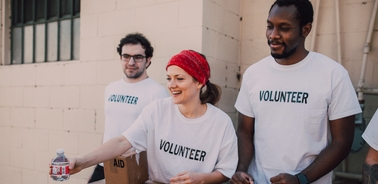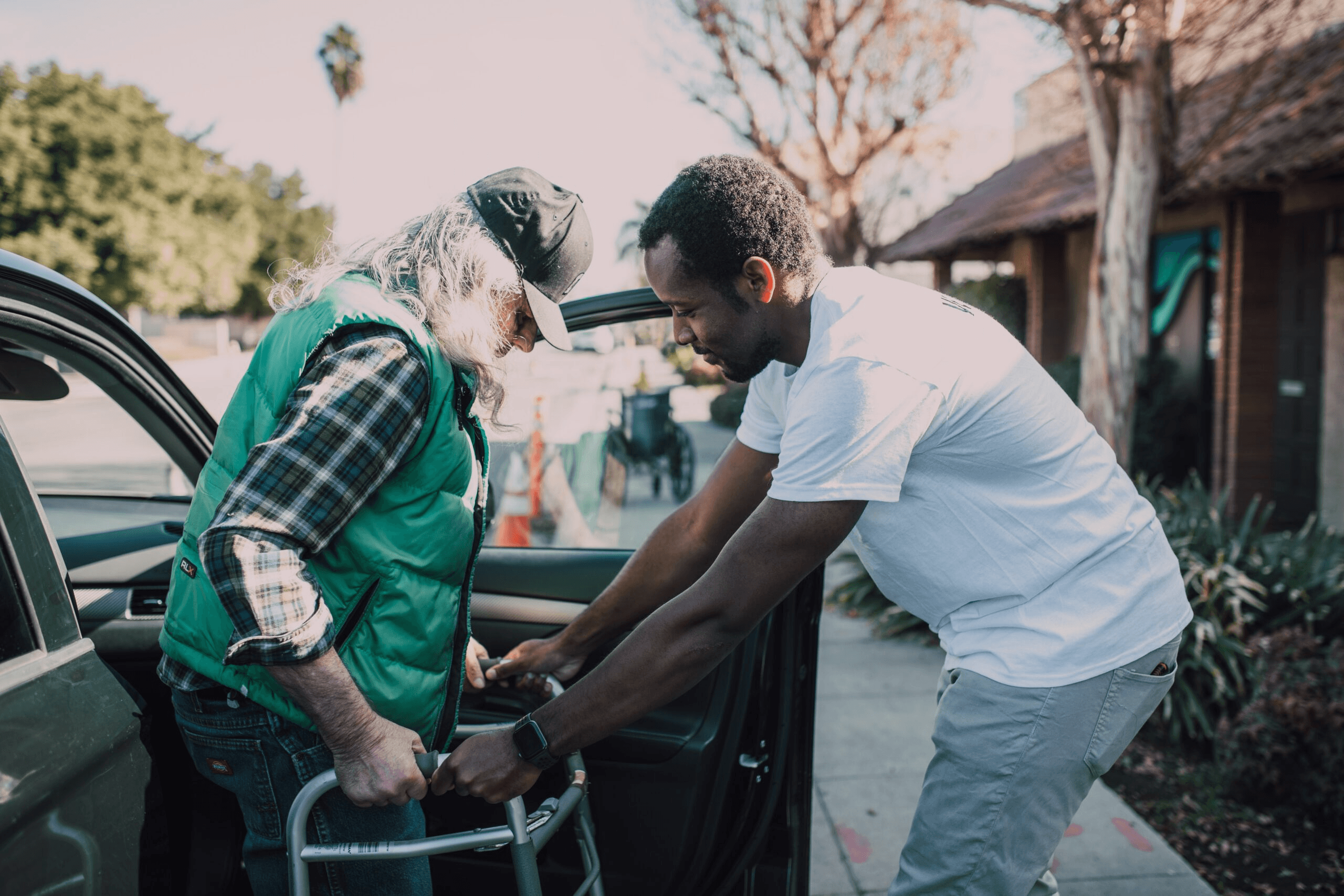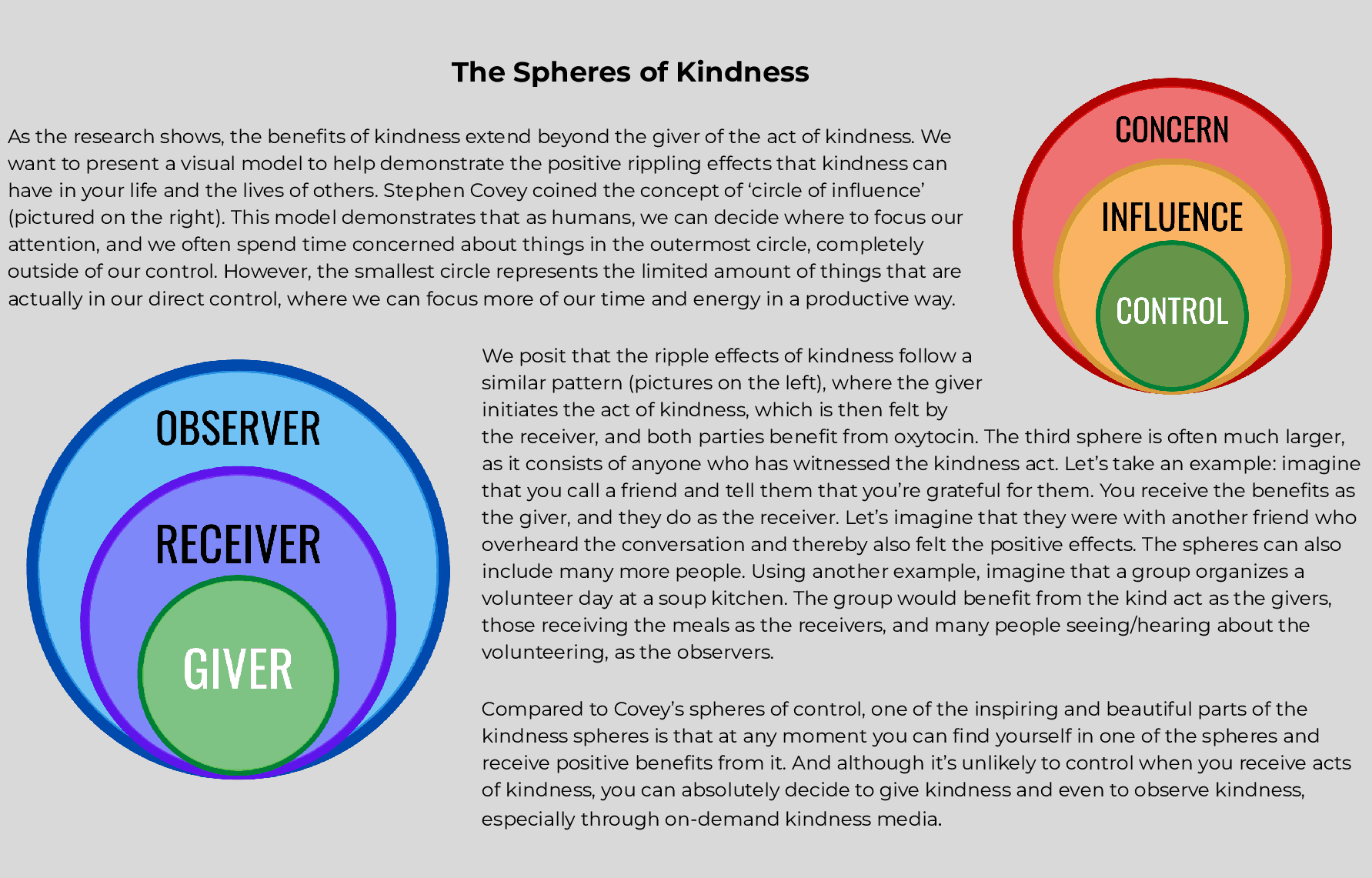Kindness: Paying It Forward to Improve Your Well-Being

At the Center for Health, Well-Being, and Happiness at IE University, we are focused on creating and sharing more kindness, empathy, and compassion in the world, to improve our well-being. We wanted to share some research-based findings behind the benefits of acts of kindness and real, tangible steps for you to cultivate more of it in your life.
For years, ‘kindness media’ has gone viral, from popular YouTube videos by SoulPancake in the early 2000s, to more recent TikTok videos of drive-by kindness by Dallas-based La La Land cafe. These videos, which often gain millions of views, can help make the Internet a more positive place. Even after watching just seconds of these videos, you may find yourself smiling, and even feeling more energized and excited to take on the day. But what is the explanation behind these feelings? Thankfully, there is a wide body of research that examines kindness and its effects on people.
The Research Behind Kindness
Kindness has been shown to release oxytocin and endorphins, which in turn creates a greater sense of connectedness and trust. Beyond the chemical effects of kindness on our brain and body, research participants have also indicated higher reports of positive emotions after kindness acts. A study from the University of Oxford demonstrated that happiness increased when participants performed kindness activities for just seven days. On a larger scale, Solanes and colleagues performed a study which suggests that participating in acts of kindness may increase the subjective well-being of the general population.
Prosocial behavior, like acts of kindness and charitable giving, are shown to positively impact not only the receiver of the action, but also the giver. Recent research by Lawton and colleagues demonstrates that giving can improve your health and well-being, often known as the “helper’s high”. A 2008 Harvard Business School study supports this finding. Participants who spent money on others reported higher levels of happiness than those who spent money on themselves. Even more surprising is the finding that those who simply observe or witness an act of kindness also benefit, encouraging them to act altruistically in the future.
Acts of Kindness for Our Well-Being
Very small acts of kindness have also been shown to increase positive emotions. In a study conducted within a healthcare waiting room, participants that viewed ‘kindness media’ instead of commercial children’s television, reported being happier, calmer, more grateful, and more generous. Especially in a high-stress and high-pressure environment such as a healthcare setting, a small change to enact more kindness in people’s daily lives can go a long way in creating positive emotions for themselves and those around them.
Beyond the fact that there are clear benefits to kindness, many people actively desire kindness in their lives. Salesforce surveyed over 2,000 students and staff members at higher education institutions in 2022. They found that 26% view well-being as an important value for their university to hold, with 19% reporting care, and 16% reporting empathy as important values. It is evident that in various areas of life, from work to education to home, kindness, empathy, and compassion have an important role to play in our well-being.
Simple Steps to Cultivating Kindness
Now that it’s clear that there is proven scientific research and evidence behind why kindness matters and helps us lead healthier and happier lives, you may be wondering how you can cultivate it in your life and for those around you. The key is to start with yourself. While you often can’t predict or control when you might receive kindness, you can certainly intentionally put yourself into the giver and observer spheres. Here are three simple ways to do so:
- Seek out exposure to kindness. Spending a few minutes watching kindness media, such as SoulPancake or La La Land Cafe, can give you a spark of oxytocin in your day.
- Choose an act of kindness and do it. You can find some useful ideas for acts of kindness here. Maybe even challenge yourself to do one every day for a week. Try to notice the difference in the positive emotions you feel during that week compared to the previous.
- Fill the spheres of kindness with more people, by organizing a kind act with your friends or family. Try to see how many people you’re able to impact with your kindness, and marvel at how many more people are added to your spheres of kindness!
Becca Smith is an adjunct faculty member and research collaborator at IE University’s Center for Health, Well-being, and Happiness. You can reach her at rebeccas@faculty.ie.edu.

